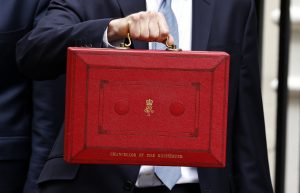3rd February 2021
February Market Overview
UK
The Bank of England, in a unanimous vote, decided it will pump an additional £150bn into government bonds as it attempts to support further spending in the economy. This is at the top end of estimates, which ranged from £50bn to £150bn, and comes just as the UK enters another coronavirus lockdown at the start of November. QE has proven a controversial policy over the past decadeas doubts persist about its true impact beyond pushing asset prices higher and widening the wealth gap. The OBR forecasts government borrowing will be close to £400bn this year as public spending jumps above 50% of GDP. With little appetite for further austerity, it is likely the government will need to raise taxes as it attempts to bring the public finances back under control.
Recent GDP data showed the UK economy shrank by 2.6% in November as the UK was forced into a second national lockdown, forcing businesses across the country to close again. Economists predict the economy will take around two years to return to pre-pandemic levels from here. The economy will likely contract 2% during the first quarter of 2021 before growing by 3.9% in Q2 and2.5% in Q3, leaving the economy on track to grow 4.9% this year and 5.3% in 2022.
Early into the new year Boris Johnson took the decision to impose a third national lockdown on England as coronavirus cases soared ever higher and further pressure on the NHS was becoming overwhelming. Scotland did likewise, with Wales already under harsher restrictions. The economic impact of this will no doubt be severe and swift, but with the end somewhat in sight as the government hopes to have vaccinated 13.9 million people at highest risk from the virus by mid-February, with the vaccine programme on-track to achieve this so far.
The new variant/mutation of COVID-19 discovered in the UK now thought to be not just more infectious, but also more deadly than previously thought, with the strain putting much additional pressure on the NHS over the past several weeks and the government urging people not to give up on lockdown restrictions and continue staying home where possible. In more positive news though, several vaccine producers have confirmed that initial research shows their vaccines to be effective against this UK mutation and others. Virus mutations are completely natural, but concerns will remain over long-term effectiveness of vaccines against future mutations.
Following Brexit, the UK is preparing to make a formal request to join the 11-member transpacific trading bloc. This trade area covers 13% of global GDP worth roughly $10.6 billion every year. Whilst individual deals of varying broadness have already been signed with some of the member countries, including Japan, an application to join the bloc is a real statement of intent upon leaving the European Union trading bloc.

Eurozone/EU
News that the European Union is to issue guidance to member states to set a target for vaccinating at least 70% of the population by this summer contrasted with initial outcome of the vaccination programme in the bloc. The EU has been slow to act on the vaccination front, taking longer to approve shots than the UK and the US, whilst struggling with how to fairly distribute amongst member nations. Tensions over the EU’s vaccination programme reached a peak at the end of January as the European Commission imposed export controls and invoked Article 16 of the Brexit trade deal, essentially creating a hard border on the island of Ireland. This was done unilaterally without prior notification to either Ireland or Norther Ireland and caused fury in both countries and in Westminster. The EU backtracked on Article 16 hours later, stating that they would not impose border checks between the two countries, but insisted it would still press ahead with plans to restrict vaccine exports of EU made shots to third party countries, which would have likely affected the UK supply (the move was targeted specifically with the UK in mind), but the bloc quickly backtracked on this decision too, later stating that UK supplies would not be hit by export restrictions. Drugs companies including AstraZeneca have since ramped up production in the region and promised to deliver more doses, though still falling below their initial promises.
Turning to Italy, Italian PM Giuseppe Conte resigned after losing his Senate majority. President Sergio Mattarella is expected to start a round of talks with party leaders before he nominates someone to forge a fresh coalition. Conte is angling for a new mandate to form what would be his third government in four years. His plan, according to officials familiar with his thinking, is to createa broader alliance. A conclusion to the Italian political drama looks distant still,but the most likely outcome at this stage does seem to be Conte forming a new government.
US
Supporters of President Trump stormed the Capitol building in protest at the election result, after Republican Senate leader McConnell gave a speech accepting the presidential election result. President Trump was less magnanimous, instead taking to twitter and insisting that the election was a landslide in his favour but was ‘stolen’ from him, before telling his supporters to go home.
Following the Capitol riots, President Trump has officially been impeached for the second time, making him the only president in history to have ben impeached more than once. The significance of this is debateable bearing in mind he no longer occupies the oval office, but it all-but ends any chance of Trump running again in the future, as support from within his own Republican party has largely disappeared.
Joe Biden has officially been inaugurated as the 46th president of the United States, in what will be remembered as one of the strangest inaugurations in memory. Along with Kamala Harris also now becoming the first female VP in US history. Biden wasted no time in undoing as much of the previous administration’s positions as possible after his inauguration, immediately signing 14 Executive Orders, including signing the US back up to the Paris climate agreement.
More drama in US politics followed when the Democrats won slim Senate majority via the Georgia state by-election huge fiscal stimulus. The ramifications are huge, as President Biden could now find his path to more radical policy reforms clearer, paving the way for policies previously thought unlikely, including his plans for over $2 trillion in additional fiscal stimulus for the economy. Look out also for potential student loan forgiveness and a more than doubling of the federal minimum wage to $15. These policies have the potential to be hugely inflationary.
Federal Reserve chair Jay Powell’s speech early in January made it clear he is not contemplating interest rate rises any time soon. On interest rates he said: “When the time comes to raise interest rates, we’ll certainly do that, and that time, by the way, is no time soon.” On tapering, he said that “now is not the time to be talking about exit”. This is a new approach for the Fed, using averageinflation targeting and outcome-led policy rather than a heavy focus on employment – the Fed will not be raising rates even if unemployment levels fall to levels that previously would have been considered a warning signal about prices.
In addition to comments made on interest rates, Powell made it clear the U.S. central bank was nowhere near exiting massive support for the economy during the ongoing coronavirus pandemic. The central bank’s policy-making body repeated it would maintain its bond-buying program at the current pace of $120 billion per month until “substantial further progress” toward its employment and inflation goals has been made. The Fed have previously made clear that they are prepared to allow inflation to run ahead of interest rates as the economy recovers from its COVID-induced slump.
Asia
China’s economy grew by 6.5% in Q4 of 2020, taking total 2020 growth to 2.3%,making it the only major economy in the world to grow last year amidst the pandemic. This is not without government support, with the People’s Bank of China injecting funds in an effort to avoid a liquidity squeeze, something analysts are careful to point out means the Chinese economy has its own problems that will need addressing.
Despite achieving three per cent year-on-year growth in the final quarter, the hospitality and restaurant industry remains thirteen per cent down for the entire year. Likewise, wholesale and retail traders suffered a negative twelve months. Thankfully, the rise in software and info tech has more than compensated for sogginess elsewhere. And the latest data shows that citizens now have more to spend; despite the pandemic, average annual household income per capita actually increased in 2020.
In Japan, the state of emergency has been extended until March 7th, as the country looks to take control over COVID-19. This comes as vaccine supplies to the country may be impacted by recent EU export controls. Japan’s responseto the virus has been seen as a success story in the west, which has struggled more than the Asian region which learnt lessons from previous pandemics, more recently SARS.
Whilst not of immediate global significance and unlikely to cause any contagion within the wider Asia region, a military coup in Myanmar (Burma) has caused some concern. The military have declared a state of emergency claiming fraud in the November election, detaining several senior members of the elected government. Military officials have since said the emergency will remain in force for a year. Where this could potentially lead in the future, is to an increase in China’s influence in the region, something Japanese Defense ministers have warned is a distinct possibility if other developed nations cut diplomatic ties with Myanmar further still.
Disclaimer:
The opinions expressed in this update are those of A&J Wealth Management Limited only, as at 3rd February 2021, and are subject to change.
The content of this publication is for information purposes and should not be treated as a forecast, research, or advice to buy or sell any particular investment or to adopt any investment strategy. It does not provide personal advice based on an assessment of your own circumstances. Any views expressed are based on information received from a variety of sources which we believe to be reliable but are not guaranteed as to accuracy or completeness. Any expressions of opinion are subject to change without notice.
Past performance is not a reliable indicator of future results. Investing involves risk and the value of investments, and the income from them, may fall as well as rise and are not guaranteed. Investors may not get back the original amount invested.












